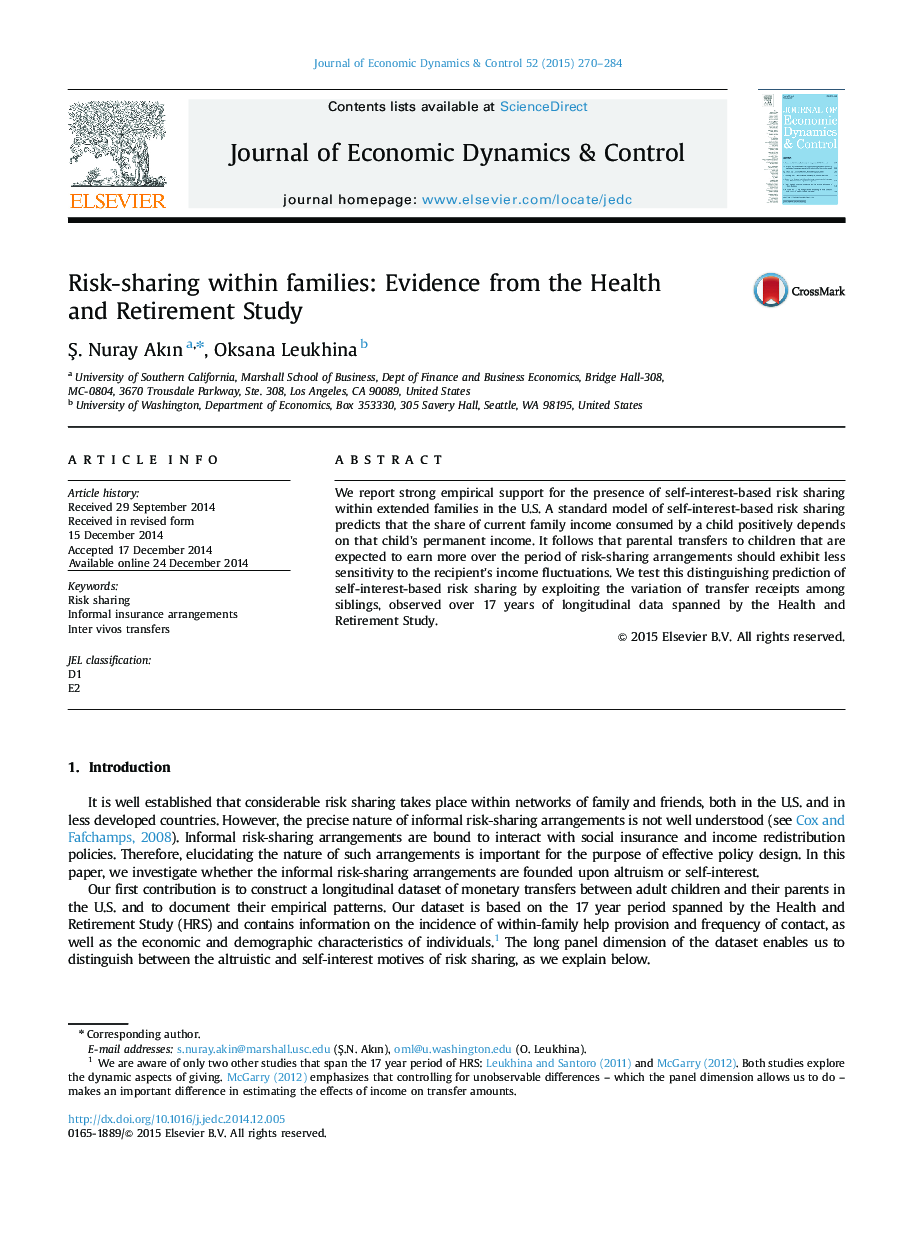| Article ID | Journal | Published Year | Pages | File Type |
|---|---|---|---|---|
| 5098342 | Journal of Economic Dynamics and Control | 2015 | 15 Pages |
Abstract
We report strong empirical support for the presence of self-interest-based risk sharing within extended families in the U.S. A standard model of self-interest-based risk sharing predicts that the share of current family income consumed by a child positively depends on that child׳s permanent income. It follows that parental transfers to children that are expected to earn more over the period of risk-sharing arrangements should exhibit less sensitivity to the recipient׳s income fluctuations. We test this distinguishing prediction of self-interest-based risk sharing by exploiting the variation of transfer receipts among siblings, observed over 17 years of longitudinal data spanned by the Health and Retirement Study.
Keywords
Related Topics
Physical Sciences and Engineering
Mathematics
Control and Optimization
Authors
Å. Nuray Akın, Oksana Leukhina,
